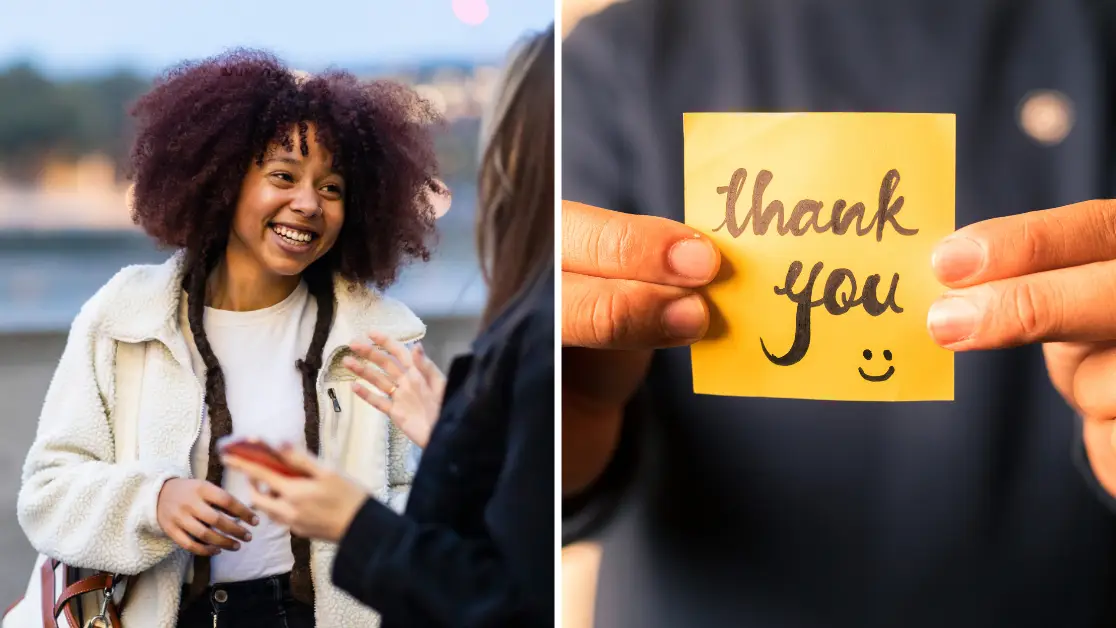
There are many habits that can be a huge indicator of your generational background, whether it’s what you wear or how you communicate.
We’ve seen everything from the Great Sock Debate and the concerning news for Millennials that winged eyeliner is out, right through to the ‘Coffee Badging’ and chronoworking workplace trends.
And now there’s also a way that you tell someone’s Gen Z purely by the way they respond to someone thanking them – and it turns out it’s been ruffling some feathers.
It seems there’s a tendency for younger people in the US to have a surprisingly aloof way of reacting to being told ‘thank you’ by someone.
Advert
It’s something that was recently picked up on by Australian TikToker @tilly_hokianga, who has been sharing a number of videos detailing things she’d noticed while living in America.

In one clip, she addressed the small matter of ‘manners’, saying: “Now, I don’t understand, like, talking to an American, you say ‘thank you’, and they always just say ‘mm hmm’.
“Like, what the f**k, dog? Like, I just said thank you, say ‘you’re welcome’ or ‘all good’ or ‘no worries’. Not f**king ‘mm hmm’.”
Someone else commented: “Or you say thank you and they say sure.”
Another agreed: “The ‘mmhmm’ after you thank them GRINDS MY GEARS! Why does it sound like they are annoyed?”
Not too long ago, a history teacher also posted about younger generations being a little more nonchalant, rather than saying a phrase like ‘you’re welcome’.
In a since-deleted tweet, he said: “My generation says ‘no worries’ instead of ‘you’re welcome’ to 1) show that doing a favor for someone doesn’t need to be a transactional thing and that we’re happy to help, and 2) because if they really knew how worried we actually were, they’d never ever talk to us again ever."
Responding to the observation, US podcaster Miinxiiee, from the For You Page podcast, explained: “Apparently in Australia, saying ‘mm hmm’ or ‘sure’ is rude in response to saying ‘thank you’."

When asked what we’re ‘supposed to say’, she replies: “You’re welcome – the full ‘you’re welcome’.
“But this is the thing, the comments were also saying that we are so anti-’you're welcome’ now because of how boomers and older generations are like, You have to say, “you’re welcome'."
Adam Korbl, founder and CEO of Amplify, told InsideHook that these much more laid back responses are prevalent among younger people.
“Recently, I’ve been catching up with my nieces and nephews, and I ask the same question: ‘Why do you guys say, ‘no worries’ or ‘no problem’?” he said.
“They answer that ‘you’re welcome’ sounds formal.
“Most youngsters want to be friendly in the very first conversation, and they think saying something so formal can make the other person shy. Or, when they tend to not like someone and never want to meet them again, they would then use formal language.”